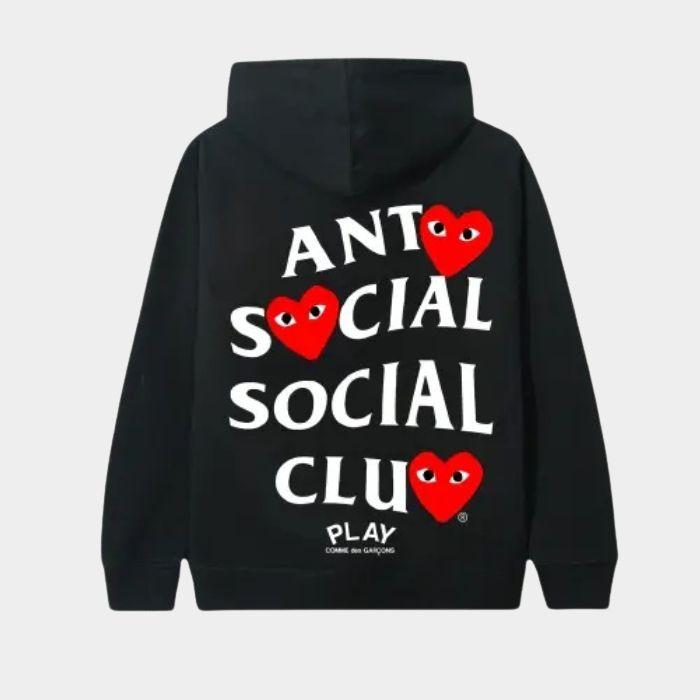The History of Comme Des Garcons’ Bold Designs

Fashion is often seen as surface-level beauty, but every so often, a brand comes along that challenges that notion. Comme Des Garcons is that force. Its bold designs are less about looking pretty and more about questioning what clothing can be. Every piece tells a story, sometimes shocking, often challenging, and always unforgettable.
Foundations of Avant-Garde: Early Days
Rei Kawakubo’s Vision and Philosophy
Rei Kawakubo didn’t set out to follow trends; she aimed to obliterate them. Her philosophy was rooted in the idea that fashion should provoke thought, not just adorn the body. This mindset became the bedrock of Comme Des Garcons identity—clothes as intellectual experiments rather than mere consumer goods.
Breaking the Mold in the 1970s
The late 1970s were dominated by glamour and traditional tailoring. Then came Kawakubo, draped in black, presenting silhouettes that defied expectation. Her early collections were raw, fragmented, and unapologetically abstract—a visual manifesto against the conventional fashion industry.
The 1980s: Shaping the Silhouette
Conceptual Runways and Deconstructed Garments
The 1980s saw Comme Des Garcons rise as a beacon of conceptual fashion. Garments were torn, reshaped, and layered in ways that challenged the human form. Models walked runways like living sculptures, each outfit a statement questioning symmetry, beauty, and normativity.
Black, Layers, and the Art of Anti-Fashion
Black became a signature, not for elegance, but for rebellion. Layers, asymmetry, and draping redefined how clothing could inhabit space. Comme Des Garcons turned the human body into a canvas, transforming clothing from functional to philosophical.
The 1990s: Minimalism Meets Maximalism
Experimental Textures and Fabrics
The 1990s introduced paradox—extreme minimalism paired with extreme exaggeration. Fabrics were stretched, twisted, and juxtaposed in unconventional ways. Kawakubo experimented with textures that invited touch as much as sight, creating a sensory experience that transcended traditional fashion.
The Play Between Absence and Excess
Her collections danced between void and abundance. Empty spaces within garments juxtaposed with oversized elements created tension and intrigue. Comme Des Garcons became a dialogue, not just an aesthetic. Every cut, tear, or fold carried intentional meaning.
Collaborations and Cultural Impact
Partnering with H&M, Nike, and Converse
By the 2000s, Comme Des Garcons expanded beyond runway exclusivity. Collaborations with mainstream brands made bold design accessible while retaining its edge. The 2004 H&M collab, in particular, became a cultural flashpoint—merging streetwear with high-concept avant-garde.
Redefining Fashion’s Relationship with Streetwear
CDG blurred lines between luxury and street, proving that conceptual design could thrive in everyday culture. Sneakers, graphic tees, and accessories became canvases for avant-garde experimentation, influencing streetwear aesthetics worldwide.
The 2000s to Present: Evolution of the Bold
Futuristic Materials and Sculptural Forms
Kawakubo’s later work embraced innovation: metallics, vinyls, and sculptural silhouettes that seem to float around the body. Her designs became architecture in motion, an exploration of how clothing can occupy space differently than ever before.
Influence on Contemporary Designers and Pop Culture
From Rick Owens to Demna Gvasalia, countless designers draw from CDG’s daring approach. Pop culture absorbed its influence too—musicians, actors, and fashion icons wear the brand as a symbol of fearless creativity.
Philosophy Behind the Provocative
Fashion as Commentary, Not Just Clothing
CDG challenges assumptions, using garments as vessels for social and cultural commentary. Fashion isn’t just visual—it’s political, emotional, and cerebral. Every collection prompts introspection: why do we value beauty, conformity, or comfort?
The Role of Shock and Subversion
Shock is not for shock’s sake. It’s deliberate, a tool to jolt viewers out of complacency. Kawakubo’s subversive approach forces reflection on the intersection of identity, society, and personal expression.
Legacy and Continuing Influence
Cult Following and Collector Culture
Comme Des Garcons’ pieces are coveted collectibles, worn by enthusiasts who appreciate their conceptual depth. Vintage items resurface decades later, proving that boldness transcends temporal trends.
The Timelessness of Bold Risk-Taking
The brand’s daring ethos ensures longevity. In fashion, where trends fade fast, CDG endures because it is never tethered to fleeting tastes. Bold risk-taking has become a signature—a timeless identity.
Conclusion: Boldness as Identity
Comme Des Garcons is more than a brand; it is an ideology. Its history is a chronicle of fearlessness, intellectual rigor, and radical creativity. Boldness isn’t just a style choice here—it’s a way of thinking. In every asymmetrical seam, every layered fabric, and every collaborative venture, CDG reminds us that fashion can—and should—challenge the world.
- Art
- Causes
- Crafts
- Dance
- Drinks
- Film
- Fitness
- Food
- Giochi
- Gardening
- Health
- Home
- Literature
- Music
- Networking
- Altre informazioni
- Party
- Religion
- Shopping
- Sports
- Theater
- Wellness



